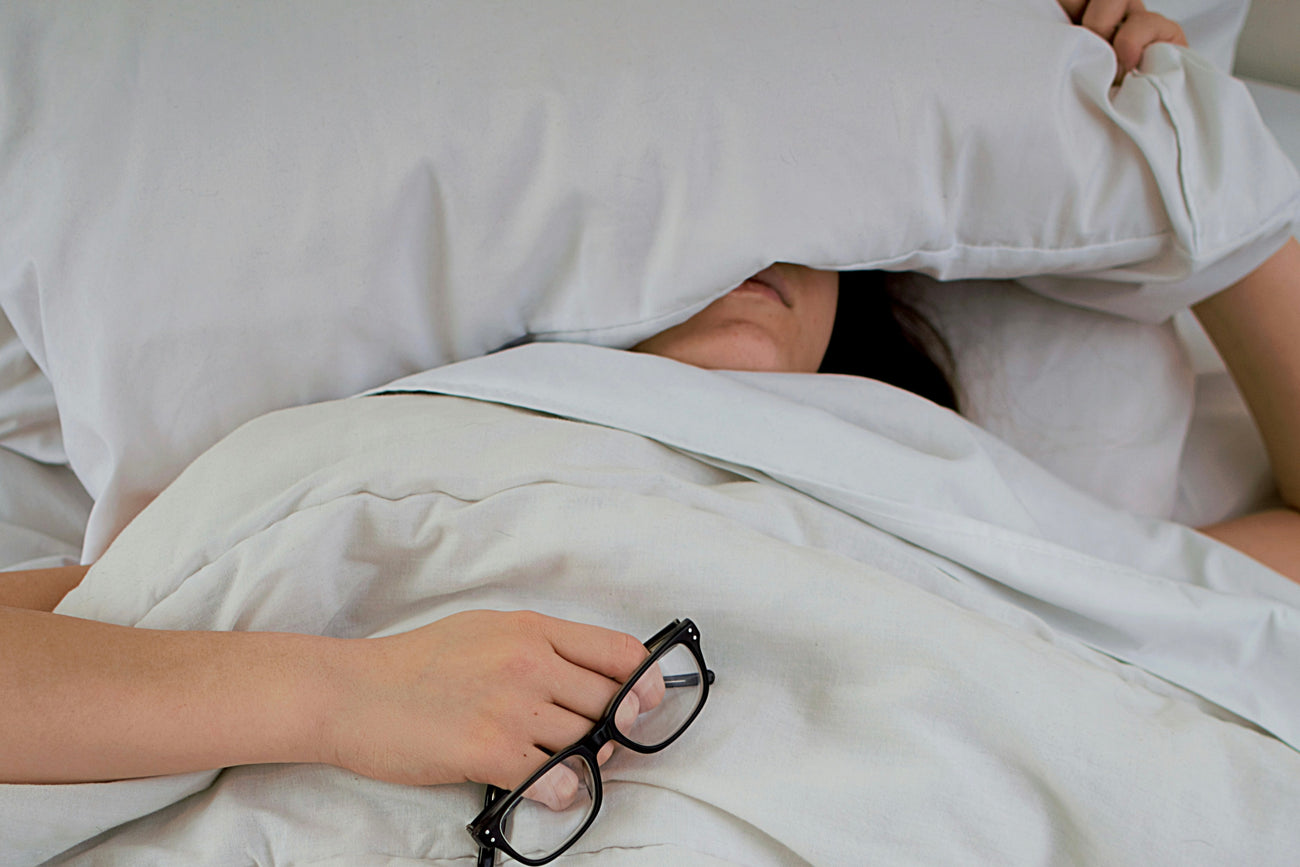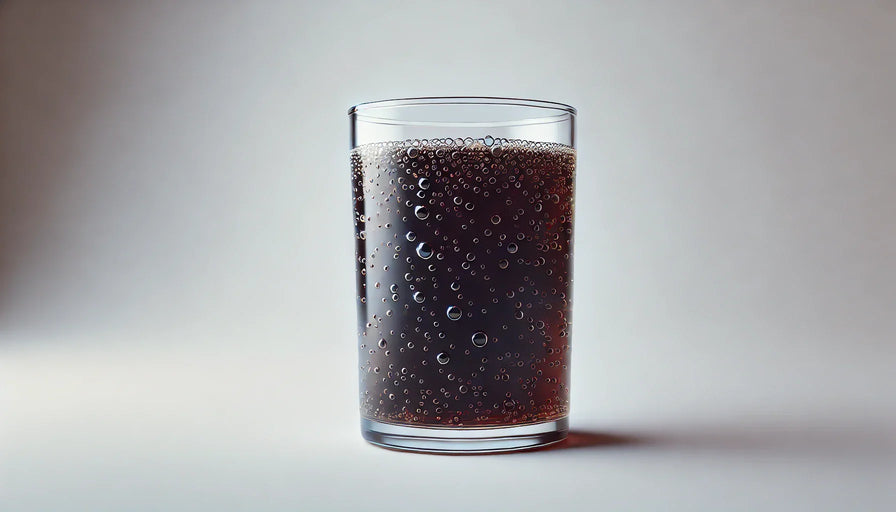
9 Expert Tips to Sleep Better At Night

Summary
Improving your sleep quality involves implementing better sleep hygiene such as maintaining a regular sleep schedule, creating a restful environment, managing stress, and staying properly hydrated. Adding these habits in your life has proven to drastically improve not only sleep but overall daily performance.
In pursuing optimal health and well-being, one must not overlook the essential role of quality sleep. A good night's rest goes far beyond banishing under-eye circles, it is deeply interconnected with your overall health, impacting various aspects such as mood, weight, and cognitive functioning.
Let's explore some effective strategies to enhance your sleep quality, promoting a healthier and more holistic lifestyle.
Table of contents
1. Establish a consistent sleep schedule
Establishing a regular sleep schedule where you go to bed and wake up at the same time every day can significantly improve your sleep quality. This consistency reinforces your body's sleep-wake cycle and can help you fall asleep and stay asleep for the night.
Try to keep the same sleep schedule on weeknights and weekends. Limiting the difference to no more than about an hour can help keep your sleep schedule consistent.
2. Pay attention to what you eat and drink
The foods and beverages you consume can impact your sleep. Avoid going to bed either hungry or overly full. Particularly, be cautious about how much you consume liquids before sleep. Excessive amounts can lead to disruptive middle-of-the-night trips to the toilet.
Additionally, limit how much caffeine and alcohol you drink. The stimulating effects of caffeine can take hours to wear off and can wreak havoc on quality sleep. And while alcohol might make you feel sleepy at first, it can disrupt sleep later in the night. It's all about the quality of sleep here!
3. Create a restful environment
Creating an environment that is conducive to sleep can significantly enhance the quality of your sleep. It is best to keep your bedroom quiet, dark, and cool. You can use earplugs, an eye mask, or a white noise machine to create the ideal environment according to your needs.
Additionally, ensure that your bed is comfortable and supportive, as the quality of your mattress and pillow can contribute to better sleep overall.
4. Include physical activity in your routine
Regular physical activity can help you fall asleep faster and enjoy deeper sleep. Timing is important, though. If you exercise too close to bedtime, you might be too energized to fall asleep. Try to finish moderate to vigorous workouts at least a few hours before going to bed. Gentle stretching or yoga before bedtime may help, though.

5. Manage worries
Take proactive steps to address your worries and concerns before bedtime. Implement stress management techniques to ease into a restful sleep. Begin by organizing your tasks, setting priorities, and delegating responsibilities.
Additionally, incorporate meditation or relaxation techniques to effectively manage stress and promote a calm mind for enhanced sleep quality. If you find yourself facing chronic stress or anxiety, it is crucial to seek professional assistance.
6. Avoid electronic devices before bed
The light emitted by electronic devices, such as smartphones, tablets, computers, and TVs, can interfere with your ability to fall asleep at night. Try setting a technology cut-off time and establishing a relaxing pre-sleep routine to help improve your sleep quality. Reading a book or listening to soothing music can be great alternatives.
7. Invest in a quality mattress and pillow
Your bed plays a significant role in how well you sleep. Investing in a quality mattress and pillow can provide the support and comfort necessary for a good night's sleep. Remember, what's comfortable for one person might not be comfortable for another, so make sure your bed suits your personal preferences and needs.
8. Consider taking a warm bath or shower
A warm bath or shower before bed can help signal your body that it's time to sleep. The rise and subsequent fall in body temperature can promote drowsiness and aid in falling asleep more easily. Additionally, the steam and warm water can help relax tense muscles and release tension built up throughout the day.
9. Stay hydrated
As we have discussed, staying hydrated is vital for good sleep. Dehydration can lead to disrupted sleep and make you feel groggy upon waking. Try to drink enough fluids during the day, but limit drinks before bedtime to avoid middle-of-the-night trips to the bathroom. Consider using a home soda maker to help maintain your hydration levels with sparkling water.
Related Read: 13 Simple Ways to Get Your Life Together

What is sleep debt?
Sleep debt refers to the difference between the amount of sleep you should be getting and the amount you actually get. It's a cumulative issue, meaning that the more nights you have with less sleep, the larger your sleep debt becomes.
For instance, if you need 8 hours of sleep per night but only get 5 hours, you'll have a sleep debt of 3 hours. If this pattern continues for a week, you'll have a sleep debt of 21 hours. Sleep debt can lead to both physical and mental fatigue and can have significant impacts on your health and well-being.
It's important to gradually 'pay back' this sleep debt by getting more sleep until you're back on track. This can involve going to bed earlier than usual or taking short naps during the day, as long as it doesn't interfere with your night-time sleep.
Benefits of better sleep
A well-rested sleep can have a profound impact on your overall health and well-being, acting as a cornerstone for optimal physical, mental, and emotional health.
- Physical Health: Good quality sleep helps in repairing cells, boosting immune function, and regulating the appetite. It also aids in maintaining a healthy heart by reducing the chances of developing heart disease and managing blood pressure.
- Mental Health: Sleep is intricately linked to various cognitive functions, including memory, creativity, problem-solving abilities, and critical thinking skills. Adequate sleep can improve concentration, productivity, and cognition, making daily tasks easier to accomplish.
- Emotional Well-being: Quality sleep can enhance mood, lessen the risk of depression, and increase emotional stability. A good night's sleep can leave you feeling more patient, joyful, and less prone to mood swings.
- Stress Management: Regular, deep sleep can significantly reduce levels of stress, anxiety, and inflammation in the body. By ensuring a sound sleep pattern, you can better manage your stress levels and increase your resilience to daily pressure.
- Improved Performance: Adequate sleep can lead to improved efficiency and performance. Whether it's physical endurance in athletic pursuits or increased concentration in academic or professional tasks - restful sleep plays a key role.
Remember, staying well-hydrated with sparkling water can aid in achieving better sleep and overall health. By encouraging good sleep hygiene practices and maintaining proper hydration levels, you can experience these positive impacts of well-rested sleep.
Related Read: What Are the Benefits of Drinking Sparkling Water?
What sleep hygiene really means
'Sleep hygiene' refers to a series of habits and behaviors that contribute to better quality of sleep and full daytime alertness. These practices are essential for individuals who have difficulty falling asleep or staying asleep throughout the night.
Many of these habits have already been mentioned in our top 10 tips, but succinctly include the following:
- Consistency: Stick to a regular sleep schedule. Try to go to bed and wake up at the same time every day, including on weekends. This can help regulate your body's internal clock and optimize the quality of your sleep.
- Create a Restful Environment: Make your sleep environment quiet, dark, and cool. Consider using earplugs, an eye shade, a fan, or a white noise machine to create an environment that suits your needs. A comfortable mattress and pillows are also crucial.
- Pay Attention to What You Eat and Drink: Avoid large meals, caffeine, and alcohol close to bedtime. These can disturb your sleep.
- Stay Active: Regular physical activity can help you fall asleep faster and enjoy deeper sleep.
- Manage Stress: Techniques such as meditation, deep breathing, or yoga can help manage stress and anxiety, leading to better sleep.
- Limit Napping: Long naps during the day can interfere with nighttime sleep. If you choose to nap, limit yourself to 30 minutes and make it during the mid-afternoon.
- Avoid Electronic Devices before Bed: Light emitted by electronic devices can interfere with your ability to fall asleep.
Consider what you're doing in the hours leading up to bedtime. Winding down with calming activities like reading a book or taking a warm bath can make it easier to fall asleep. Striving for a balance of good nutrition, exercise, and relaxation techniques can also go a long way toward achieving good sleep hygiene.
And don't forget to stay hydrated! We, at Soda Sense, believe that maintaining hydration levels with the help of a home soda maker, allowing for refreshing sparkling water beverages, can contribute to better sleep health.
Can you become reliant on melatonin supplements?
Yes, it is possible to become reliant on melatonin supplements if they are used improperly or over a prolonged period.
Melatonin, a hormone naturally produced by the pineal gland in the brain, helps regulate sleep-wake cycles. While melatonin supplements can be beneficial for short-term use, such as adjusting to a new time zone or managing occasional sleeplessness, over-reliance can lead to dependency.
When the body becomes accustomed to external melatonin, it may produce less of the hormone naturally, potentially disrupting your sleep patterns. It's important to consult with a healthcare professional before starting melatonin supplements and use them as directed to avoid dependence.
Sleep well, live well
Achieving a good night's sleep is not a distant dream, but a tangible reality that can be achieved through mindful practices and lifestyle changes. From maintaining consistency in your sleep schedule to creating a restful environment, managing stress, staying active, and not forgetting to stay hydrated can significantly improve your sleep health.
Remember, it's not just about the hours you spend asleep, but the quality of that sleep that truly matters. At Soda Sense, we believe in the power of hydration, which can be easily maintained with the use of home soda makers, leading to sparkling water beverages that not only quench your thirst but also contribute to better sleep health. By adopting these practices, you're not only investing in better sleep but in a healthier, more fulfilling life.
Recommended reading

How to Give Back During Thanksgiving 2025
Key takeaways Thanksgiving is a time to express gratitude and share with those in need. From volunteering at local shelters to donating food and essentials, there are numerous ways to give back to...

What Does Carbonation Do to Your Body?
What does carbonation do to your body? Carbonation alone typically has minimal effects; however, it can cause bloating and discomfort for some, and it may worsen acid reflux due to carbon dioxide ...

What Are the Health Benefits of Sparkling Water?
Summary Sparkling water isn't just a refreshing drink—it comes with surprising health benefits too. From aiding digestion to improving hydration, discover how sparkling water can be a healthy addi...